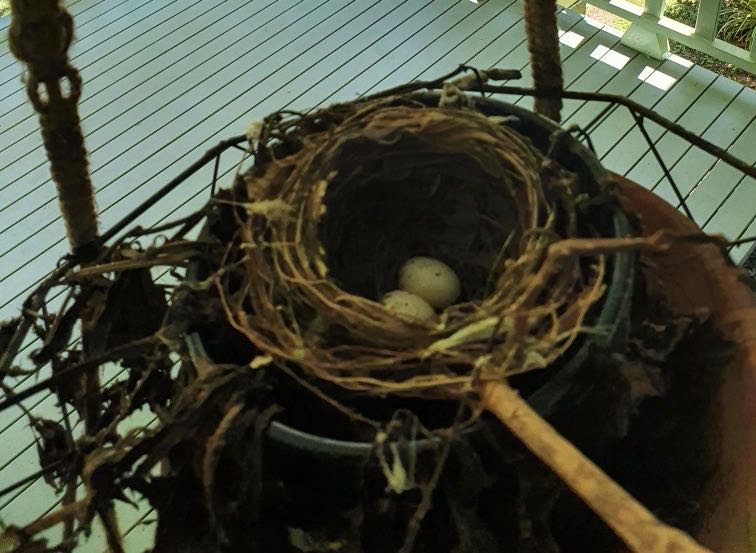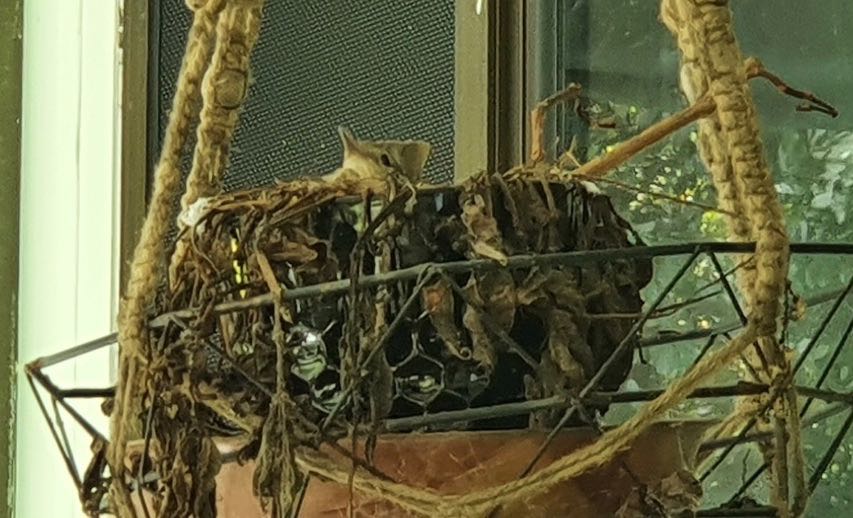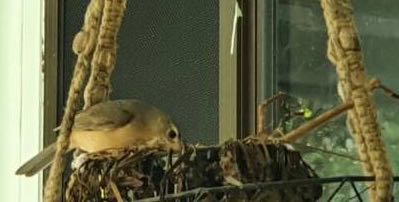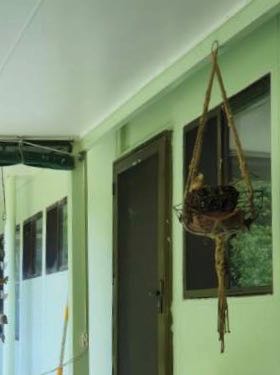Dorothy and Peter Klumpp have kindly shared some photographs from their back verandah. Just recently the Bower’s Shrikethrush (Colluricincla boweri) has moved in and is nesting, literally on the backdoor step. The chosen nesting place is a hanging basket that once held a pot-plant. Peter says that his ineptitude at gardening has finally paid off. The plant died and the birds took the opportunity to make good use of the macrame plant hanger. Of course, we all know that the Klumpps are great gardeners, but in this case they have graduated from green-thumbs to feathered fingers!
One nesting season I had the Bower’s Shrikethrush build a nest in the plastic peg basket hanging from the (undercover) washing line. Colwyn has had the birds return several seasons to also nest in her peg basket on the back verandah.
The Bower’s Shrikethrush is endemic to upland rainforests in the Wet Tropics region. It has been described as “one of the more common plainer birds in the tropical rainforest”. No one who has heard the call of this bird would describe it as plain. Female and male birds are distinguishable in that the female has an eye ring and eyebrow of pale feathers that is lacking in the male. The Bower’s Shrikethrush feeds on insects and their larvae from the mid-canopy and often on the ground.
We look forward to an update on the nesting at the Klumpps and some photos of the new (feathered) grandchildren??!!




Text by Michele Bird and Photos by Peter & Dorothy Klumpp.

Thanks for confirming the ID Jamie. Much appreciated.
Great to see one of our local birds making their home in one of our houses. I am sure you will enjoy watching the chicks grow and fledge.
From the photos it looks like this is the more common little shrike-thrush, which has a pale brown head, back and beak. Bower’s shrike-thrush is slaty grey above and has a very dark beak.
I look forward to hearing that the chicks have hatched and all is well. Well done to the ‘Grandparents”